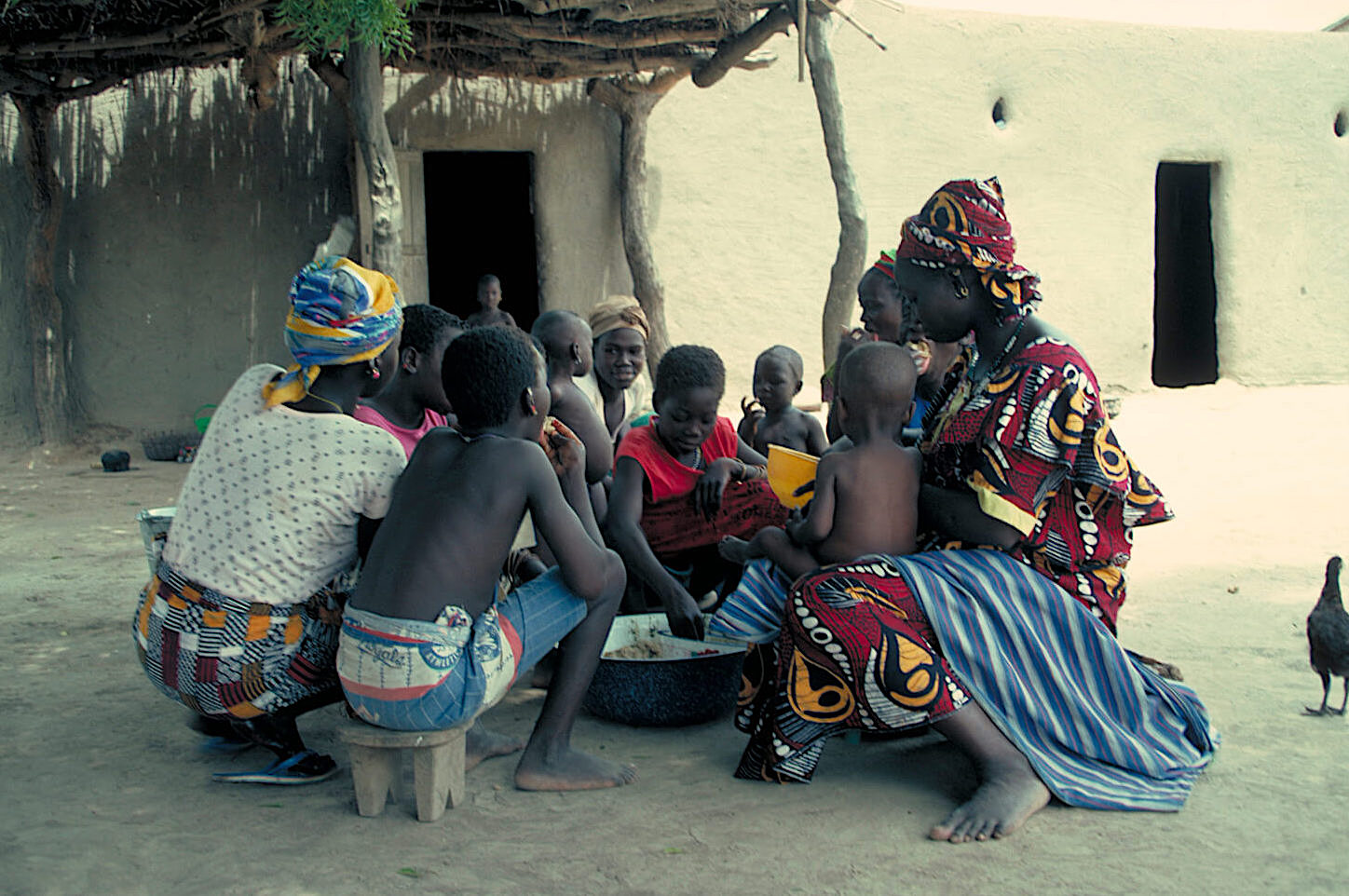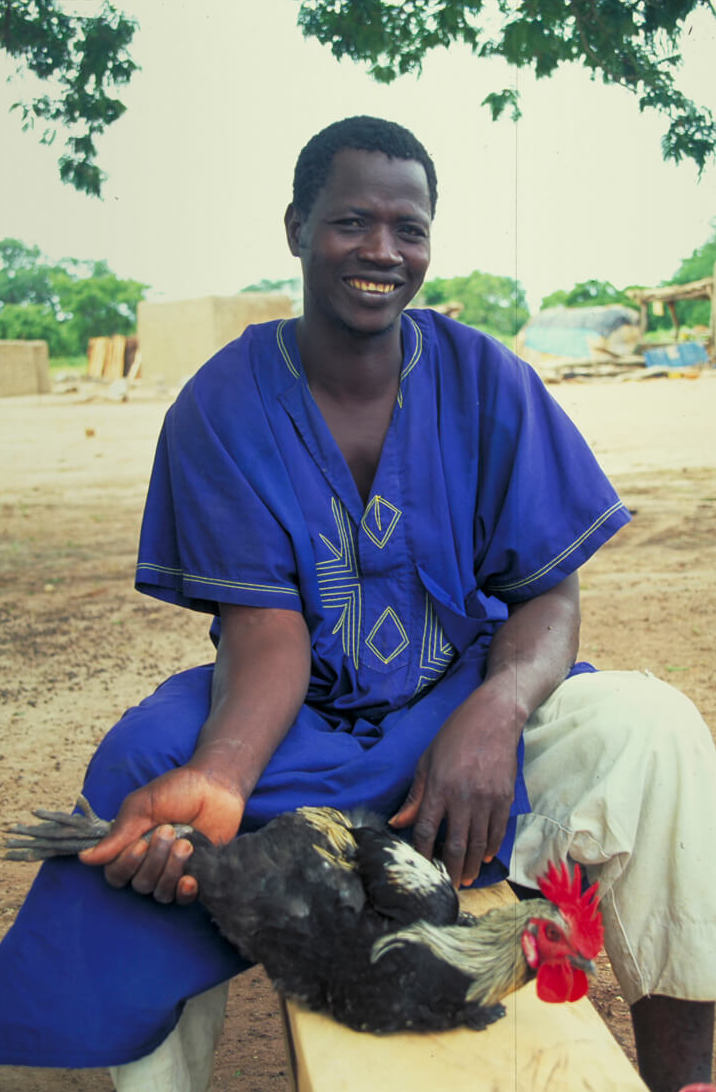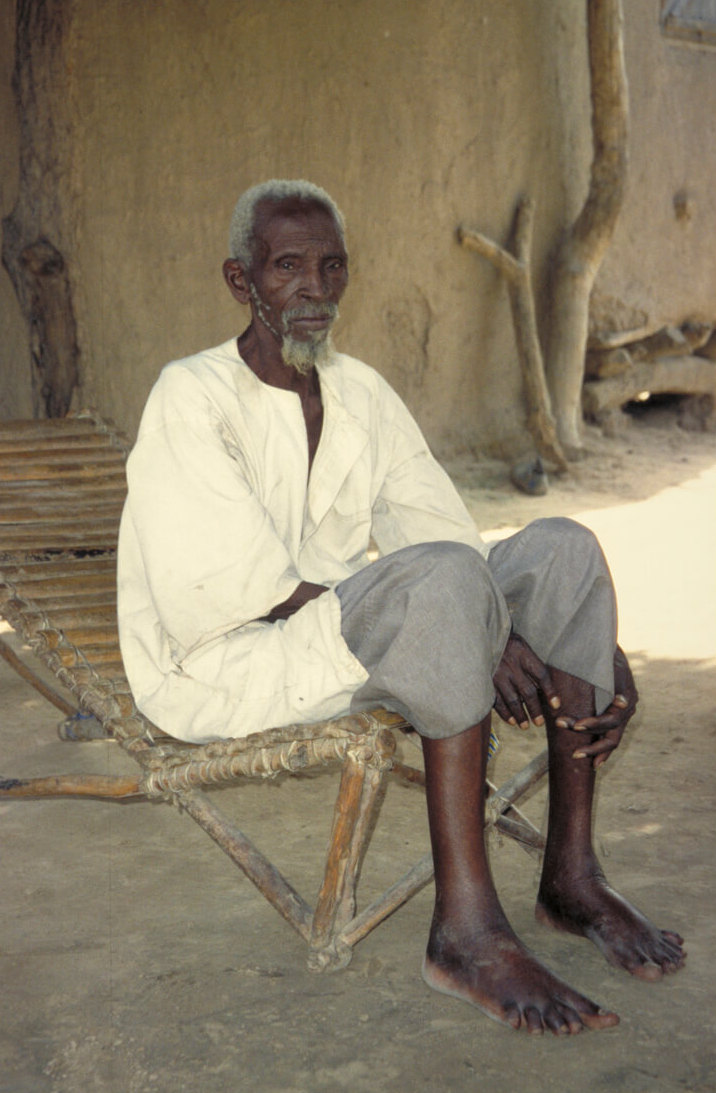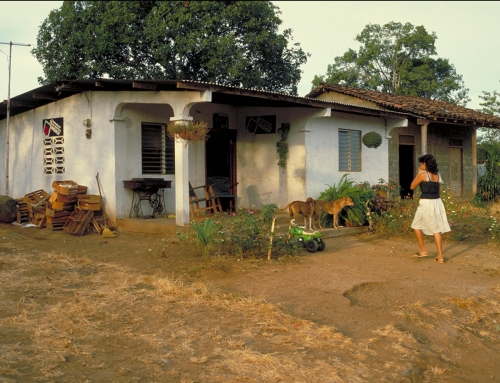
Why so many wives?
I had to bring an interpreter with me. First day, when dinner time comes, I am served alone in the room they had freed for me.
I was not very happy about this. Meal time is an occasion for me for discussion. I ask my interpreter why? “Because they are ashamed,” she says. “They eat with their hands”. “Well, this is not a problem” I explain to her. “Many people in the world eat with their hands” and showed her the pictures of Korea, Vietnam and others.
I also explained that in my culture, when I have people at home, if I served them dinner alone in one room while I was having dinner with my family, they would be very insulted and I would probably never see them again.
The interpreter must have explained this, because the next day, the three wives came to have lunch with me in the little room, sitting on the floor was The interpreter told them that I had lived before in a family where there were many wives. In Papua New Guinea, there were five wives; “Five!” Are they Muslim? was the first question. Learning that polygamy is not Muslim initially. Why so many? they asked.
I explain to them, that in PNG, when a woman is pregnant and until the child is “so high” (3 years old about) the man cannot touch his wife. – This rule is first to assure that the wife will stay strong enough to do all the work and second to assure that the child will have better chance to live.
“Oh!” the three wives explain, “We would also like to have this rule!”
I felt like sending a fax to PNG telling them: “Hey, there’s people here who think your way of doing is top, when most people speak of you has primitives.
It always depends on how you look at things is it not?


A thought
A present, a thought, a mark of respect. Travel in West Africa with a few cola nuts in your pocket. You can offer them to the elderly when arriving in a village and they will accept this gesture as a sign of respect. In exchange, you will accept the live chicken to accompany you in your travels.
Often, educated people leave their village.
Avoiding migration to the city is a major concern. Often, educated people leave their village. To keep people at home, the chief had refused funds to build a school for the last twenty years. But, when the neighboring village built a school, the chief changed his mind and finally agreed to accept the aid money. The village has now had a local school for three years.

Ladji says his father is nearly 120
Numbers are connected to magic, curses and to the taxes collected by the colonial power. He does not know how many people live in the village. He does not know the number of children he has, how many family members he feeds, how much he must plant and harvest to feed them all for one year, how much land he has. He does not know his family’s ages. Even registration papers read “approximately”. There is no paper for Soulouman Malle. Ladji says he is nearly 120.
Continue in full article




